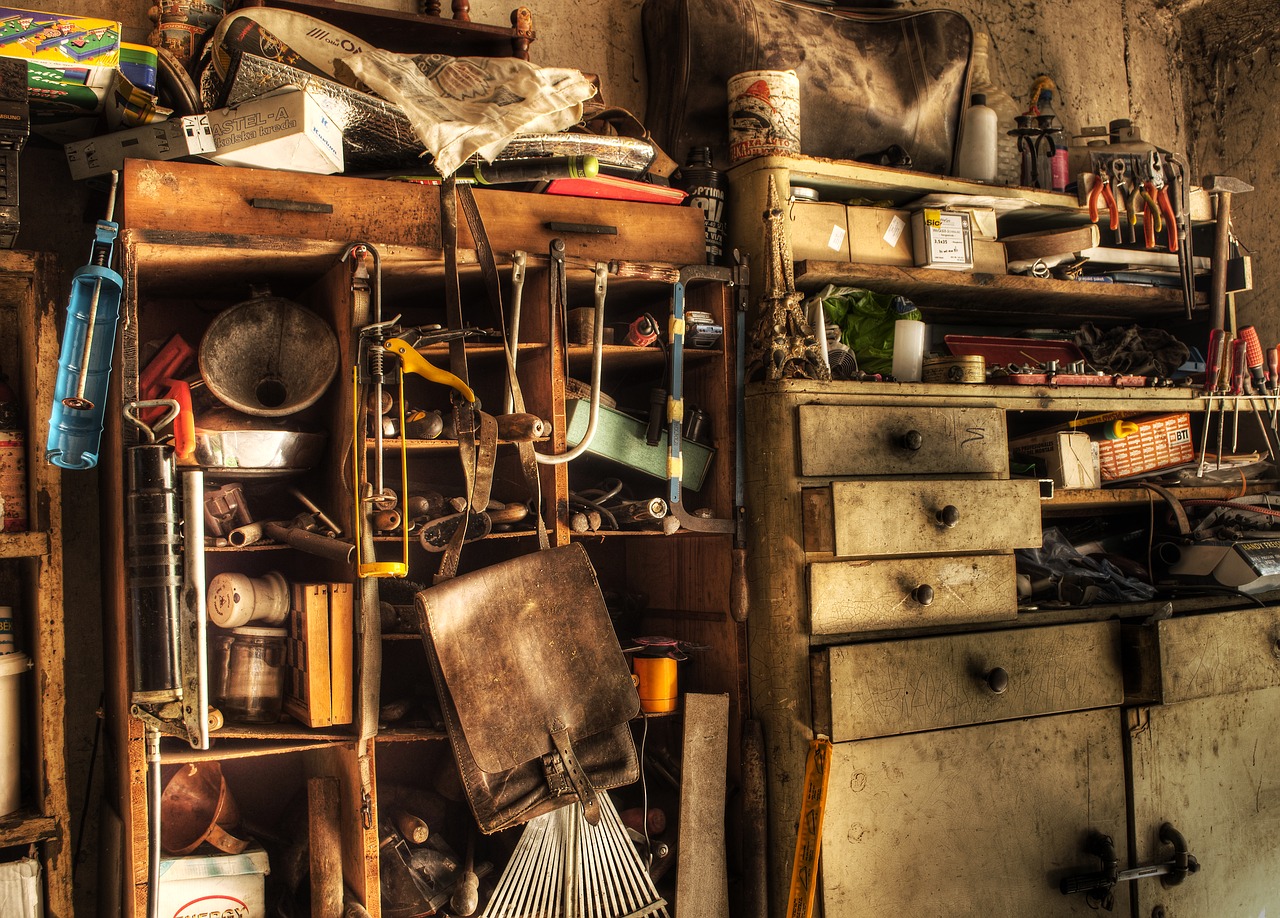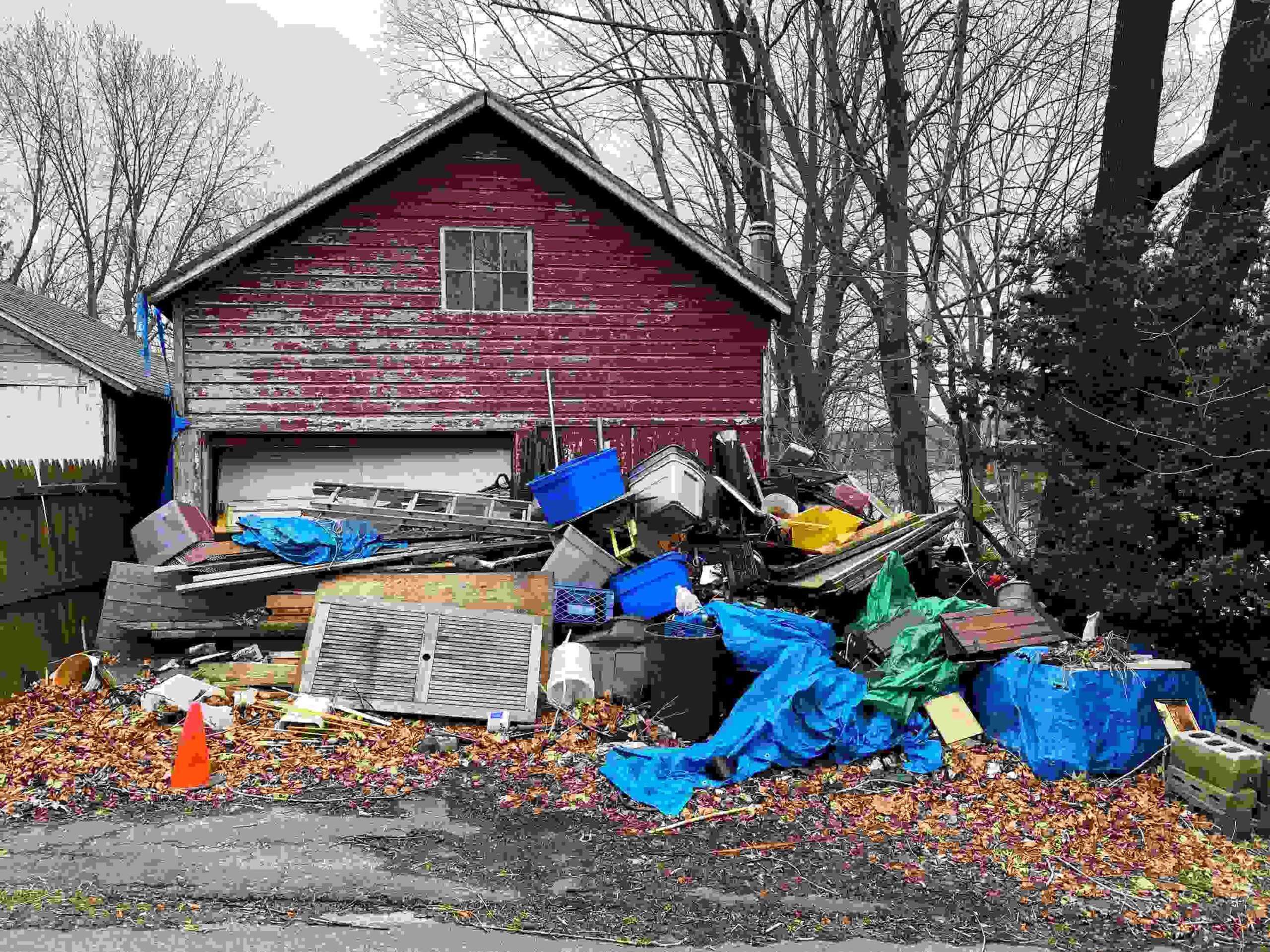
 A Clear Path Editorial Team
A Clear Path Editorial TeamEvery move is stressful and a challenge. For someone who hoards, it will be more difficult to manage the situation. Their home is probably filled with unnecessary things and even junk. However, someone with a hoarding disorder will find it difficult to part from almost any type of possession. Although many people consider moving a perfect time to declutter and get rid of the unwanted things that are always in the way, it’s not the same for hoarders. They have a strong attachment to their belongings and don’t want to throw or donate them. Therefore, if you want to help a friend with a hoarding disorder move, you will need a lot of understanding and organization.
What is hoarding?
First of all, let’s make sure you understand your friend’s situation. It is crucial to make the difference between chronic disorganization and the clinical definition of hoarding.
People with chronic disorganization can have clutter in their living space, but not the same way as hoarders do. Chronic disorganization can cause a mess in one’s home or office due to time-management issues rather than long-term planning. Additionally, chronic disorganization may result from ADHD, ADD, dementia, or some other health condition.
To illustrate the difference a bit further, let’s look at how people with this condition are likely to behave.
Ultimately, people who have chronic disorganization can be described by the following:
On the other hand, people who have a hoarding disorder show chronic difficulty throwing things away. Hoarding is associated with the physical activity of bringing or purchasing unnecessary items into a home. They will cling to personal belongings and compulsively collect different kinds of things. At the same time, they have a strong perception that keeping those items is of vital importance.
People with a hoarding disorder may:

Additionally, their collection of items can cause hazardous clutter and unhealthy living conditions. It’s also common for them to say they are collectors, but it’s essential to know the difference between a healthy and unhealthy collection.
Tips to help a friend with a hoarding disorder relocate
Someone who hoards will certainly fear being judged once they need to start their moving process. They often don’t like having guests over and are pretty anxious when others are handling their possessions. Therefore, your role as a friend will be crucial to help them go through this kind of change.
Even though you might consider this a fresh start for your friend, moving to a smaller house or an apartment is no easy feat for a person struggling with hoarding. After all, remember that downsizing is a challenge for everyone. For example, it will be tough for someone with a hoarding disorder to declutter and choose what stays and what goes. Fortunately, we have created a list of ways to assist your friend with a hoarding disorder relocate to a new home to help you both along the way.
Show understanding
Educating yourself on hoarding disorder and understanding your friend’s problem will help you develop a better solution.
If you prepare in advance that you will experience difficulty during the moving process and that it won’t progress all the time, it will be easier for you to be gentle and understanding.
Also, it’s better to be aware that it’s unrealistic to convince them to throw everything out. You can instead talk to them, show compassion, come up with compromising ways of how you can help, and discuss the best way to solve conflicts.
Stay positive and patient along the way.
Although an average person can think there is a simple solution to hoarding: throwing everything away can only worsen the problem. Their anxiety can reach very high levels, and you won’t go anywhere by trying to convince them to part from everything they firmly believe they need to keep.
Alternatively, try being patient and supportive. Since hoarding is a psychological problem, bear in mind that throwing things without your friend’s consent can only lead to more significant hoarding issues in the future.
You can help your friend out by sorting, packing, and making tough decisions about their belongings together. This way, you can help them make more reasonable decisions about their possessions while acknowledging their feelings. For example, your friend can determine which items are of the highest emotional value for them. This way, you will create a path for something to be thrown while leaving space for feeling contentment for keeping certain items. Additionally, you can relieve the stress of packing and relocating by dealing with some things later and not requiring your friend to make instant decisions.
Set reasonable expectations to help a friend with a hoarding disorder move
Hoarding is a long and ongoing process that doesn’t just happen overnight. And neither will the recovery from it happen quickly. That is why you should set some reasonable goals with your friend and celebrate even the most minor victories to motivate them to keep going.

So, if you recognize change and celebrate even the slightest progress, be sure to mention it. It will help encourage more significant changes in the future.
Remove junk and clutter whenever an opportunity arises
This is a must-do part of every relocation. You need working space to pack and move successfully. Therefore, cleaning the place and removing the junk will enable your friend to control what stays and what goes.
Caption: Remember to stay protected when clearing the junk and dirt from your friend’s house by wearing gloves and a mask.
Alt tag: A house with a large pile of junk in front of it as a way to help a friend with a hoarding disorder move

It would be best to develop a system of sorting through belongings by having bins of what stays, what will be donated, and what is to be thrown away. Our advice is to work room by room and once you pack a particular bin or box, carry it out. This way, you will avoid possible changes in decisions.
Seek help from professionals in the field
It’s not a bad thing if you are thinking of getting professional help. Even though you love your friend deeply, the whole process can be overwhelming for you too.
You can consult your friend’s therapist and ask for possible ways to help them through distress. There are also professional organizers and consultants you can reach out to and seek a consultation.
The takeaway
Hoarders are people that compulsively collect items and consider holding onto them of vital importance. It is not uncommon to see them living in unhealthy living conditions due to large amounts of clutter. Therefore, it’s essential to know your friend will find the downsizing process difficult and prepare accordingly. Be prepared and patient when you help a friend with a hoarding disorder move and live a happier life.